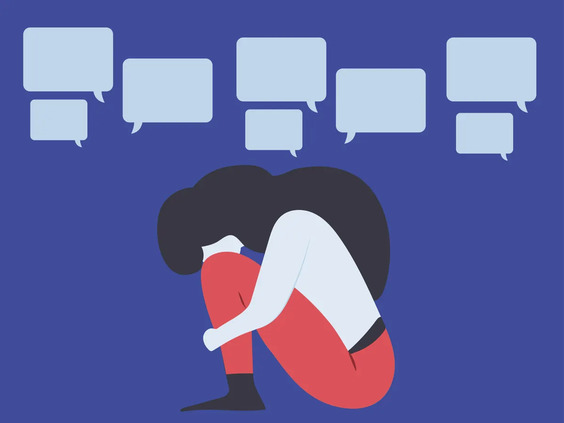

The internet has become a powerful tool for expression, but when misused, it becomes a breeding ground for hate speech, communal provocation, and targeted abuse. From caste-based slurs on Facebook to religious intolerance spread via WhatsApp forwards, online hate crimes are no longer virtual—they spill into the real world, often with violent consequences.
According to a study by Microsoft, 41% of Indian internet users have encountered online hate, with young people, women, and minorities being the most frequent targets.
Hate crimes online are not “just words.” They can:
- Instigate riots and mob violence
- Damage mental health and morale
- Undermine national unity and law enforcement efforts
Policemen must evolve beyond the streets and take their duty to the digital frontier—because online hate can lead to real bloodshed.
How to Spot Online Hate Crimes
Recognizing online hate crimes early is the key to prevention. Here are red flags every officer must recognize:
Common Signs of Online Hate:
- Posts or comments targeting specific religions, castes, regions, genders, or sexual orientations with abusive or inflammatory language
- Meme culture used to subtly spread stereotypes and mock minorities
- Fake news meant to incite communal tension (e.g., doctored videos claiming religious desecration)
- Use of coded language, emojis, or symbols (like “88” or “☠️”) that hide hateful ideologies
Hate may come disguised as a joke or opinion—but its intention to demean or provoke is what qualifies it as a crime.
Real-World Impact: When Hate Posts Turn Deadly
Case 1: Bengaluru, 2020
A Facebook post mocking a religious figure went viral. Within hours, riots broke out in the city. The police had to open fire to control the mob. Three people died, and over 60 policemen were injured.
Case 2: Delhi Riots, 2020
Videos and posts circulated online spreading fake communal narratives. Investigations later found that social media incitement played a critical role in planning and executing the riots.
These cases are reminders that online hate is not just digital mischief—it is a weaponized form of propaganda.
Legal Provisions Against Online Hate Crimes
While India doesn’t have a specific “online hate crime” law, multiple sections of IPC and IT Act can be applied:
Indian Penal Code (IPC):
- Section 153A – Promoting enmity between groups on grounds of religion, race, etc.
- Section 295A – Malicious acts intended to outrage religious feelings
- Section 505 – Statements creating public mischief
- Section 509 – Words or gestures intended to insult modesty
IT Act, 2000:
- Section 66A (though struck down, some similar clauses in state laws still used in practice)
- Section 69A – Power to block public access to harmful content
- Section 67 – Publishing obscene material online
Police officers must apply the right sections when registering FIRs for hate speech online. Always consult cyber law experts or DCP Cyber Cell if unsure.
Why Digital Civility Is the Need of the Hour
Digital civility means promoting respectful, inclusive, and empathetic behavior in online spaces. In a country as diverse as India, this is the first line of defense against digital disharmony.
Key Behaviors That Foster Digital Civility:
- Encouraging fact-checking before forwarding messages
- Promoting respectful discourse, especially around religion and politics
- Avoiding the temptation to respond to hate with more hate
- Supporting victims of online abuse rather than staying silent
Policemen must lead by example. As authority figures, your online behavior sets the tone for the public. Think before you like, comment, or share.
What Policemen Should Do: Actionable Steps
✅ 1. Create Awareness at the Grassroots
Use your beat rounds and community policing networks to:
- Educate youth on hate speech laws
- Conduct cyber civility sessions in schools and colleges
- Warn WhatsApp group admins of their legal responsibilities
✅ 2. Report and Respond Swiftly
Don’t delay digital action. As soon as hate content is identified:
- Screenshot and preserve metadata
- Trace the source via IP or phone
- Register FIR under relevant IPC/IT sections
- Alert district-level cyber units or CERT-In if content is viral
✅ 3. Monitor High-Risk Days
Republic Day, Eid, Holi, Independence Day, or elections are peak times when hate messages circulate.
Keep surveillance tight on:
- Political WhatsApp groups
- Public Telegram channels
- Twitter/X trends and viral videos
✅ 4. Use Technology to Your Advantage
Train your team to use tools like:
- Social Media Analytics tools (e.g., Voyager, CrowdTangle)
- Image search for meme tracking
- Hashtag monitoring to trace hate trends early
Collaborate with Other Agencies
Policing hate speech isn’t a solo battle. Coordinate with:
- Cyber Crime Cells at state and district levels
- National Commission for Women (in case of gender-based hate)
- Childline and NCPCR (for child-related hate content)
- Social media platforms for takedowns and user info
Remember: your FIR and legal pressure can get even global tech giants to act.
Public Outreach Strategy
Build community trust and curb hate with these outreach steps:
- Host "Cyber Peace Sessions" in schools, mosques, temples, and local clubs
- Work with local influencers to create positive digital campaigns
- Use official police social media handles to promote unity messages
- Celebrate examples of good digital citizenship from the community
Help Victims Speak Up
Many victims of online hate don’t know where to go. Be their voice:
- Set up a dedicated cyber help desk at police stations
- Maintain a victim-friendly atmosphere—no judgment
- Help them file complaints at www.cybercrime.gov.in or in-person
- Ensure identity protection, especially in cases involving minorities or LGBTQIA+ persons
Final Word: Your Digital Beat Needs You
As police officers, your role has moved from chowkis and checkpoints to Twitter timelines and Telegram groups. Every hate-filled comment left unchallenged is an invitation for chaos.
It’s time to step up as Cyber Peacekeepers. Your vigilance can turn toxic platforms into safe spaces and protect vulnerable citizens from becoming digital punching bags.
You carry a lathi in one hand and the law in the other. Now carry digital empathy in your heart—and clean up the virtual streets too.
Cyber Hygiene Foundation
- CyberAwareness CyberSafety PersonalDataProtection SafeInternetForAll CyberHygieneForAll DigitalSecurityLaw
You May Also Like It
Understanding the Growing Threat of Loan Frauds Loan frauds have become
In your role as protectors of law and order, you
Leave A Comment
Don’t worry ! your e-mail address will not published.








0 Comments